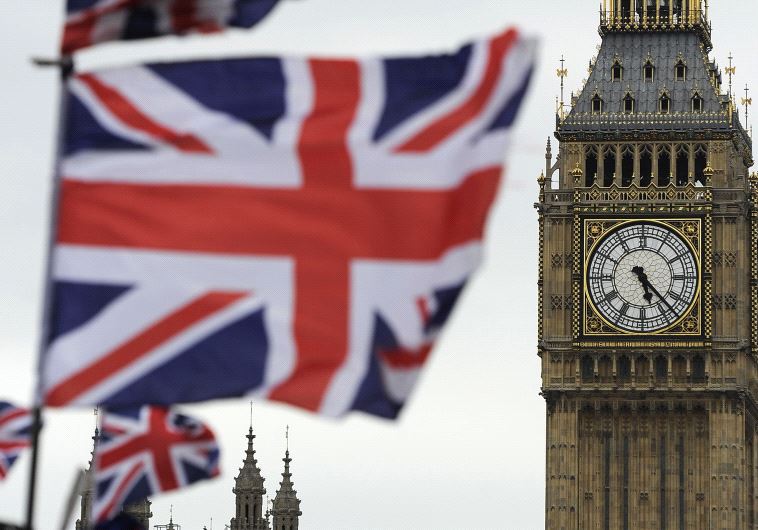Israeli security expert: 'Near-impossible' to stop London-style attack
Former Shin Bet official: "For me, that is one of the mistakes in Britain, not allowing police to have weapons."
 Flags are seen above a souvenir kiosk near Big Ben clock at the Houses of Parliament in central LondonUpdated:
Flags are seen above a souvenir kiosk near Big Ben clock at the Houses of Parliament in central LondonUpdated: